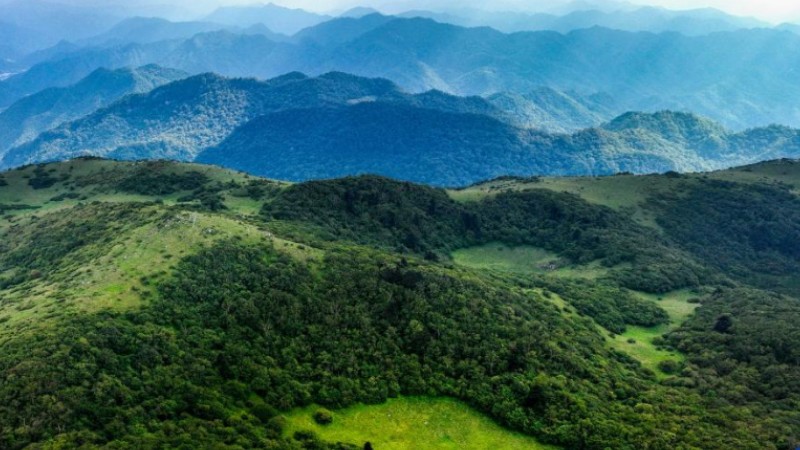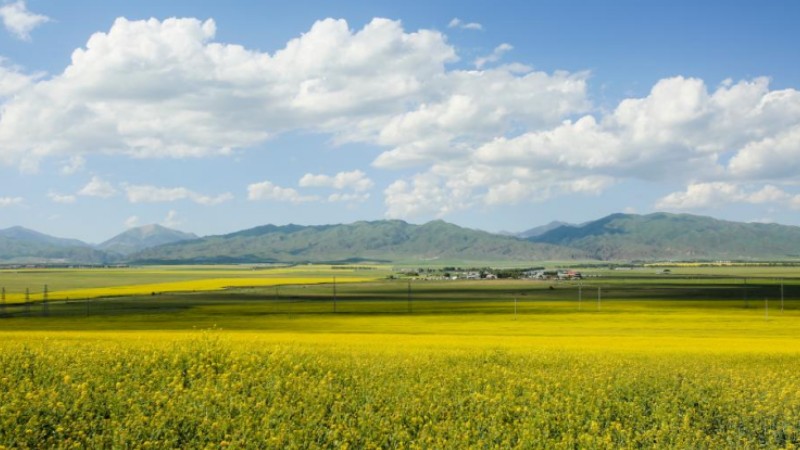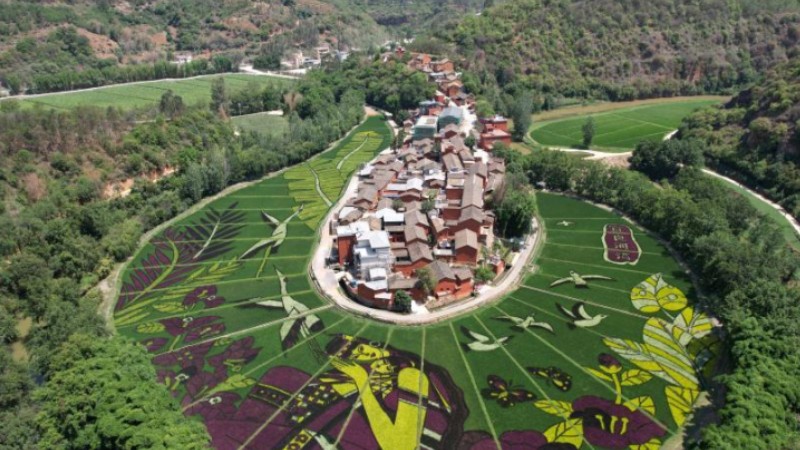Sci-tech hub in Central China's Hubei empowers 51 postgrads with hands-on research
Zhang Shuntao, a Ph.D. student in edaphology at Huazhong Agricultural University in Wuhan city, central China's Hubei Province, passed his thesis defense on May 28 and moved closer to becoming a postdoctoral researcher.
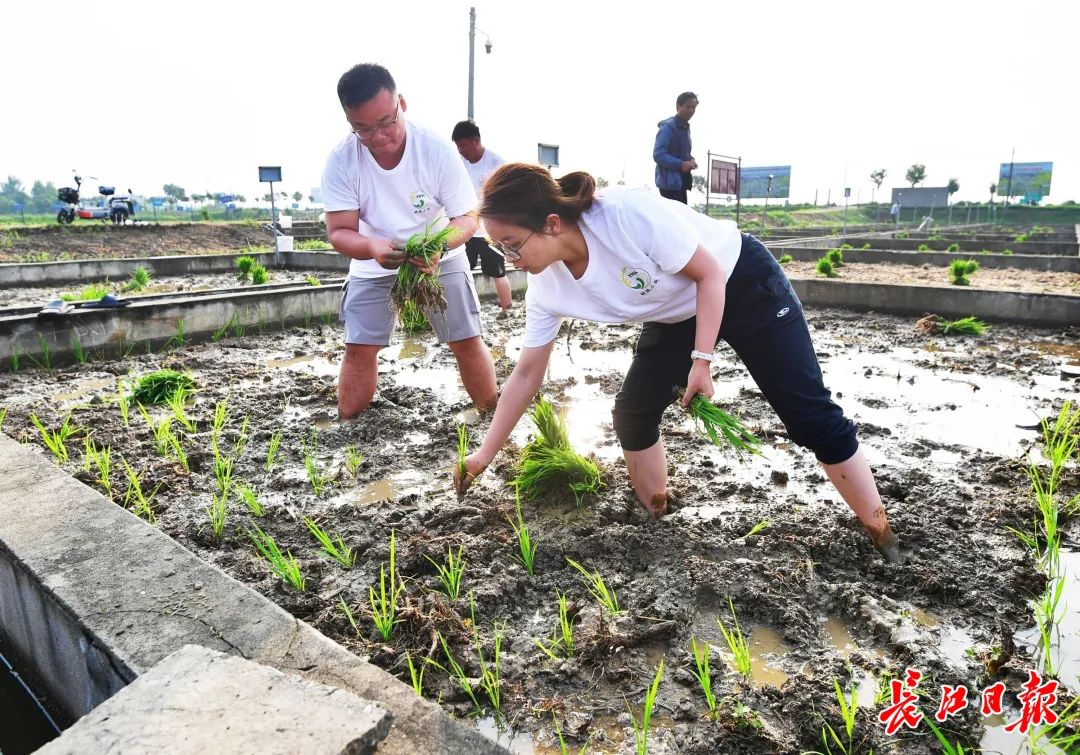
Postgraduate students work in the field. (Photo/Changjiang Daily)
Zhang's thesis was notably enriched by his experimental fieldwork conducted in Zhangchi village, Shayang county, Jingmen city, Hubei, where he dedicated two years of fieldwork over the span of his six-year postgraduate studies.
Huazhong Agricultural University established the "Rapeseed Science and Technology Courtyard" in Zhangchi village in 2011. Since then, over the course of 12 years, 51 postgraduate students have performed research there.
The courtyard's founder, Professor Lu Jianwei of the College of Resources and Environment at Huazhong Agricultural University, stated that many postgraduate students had spent an accumulated two years at the courtyard conducting research and learning more about the countryside.
Before coming to the courtyard, 90 percent of these postgraduate students had never had the opportunity to engage in farm work. Nevertheless, they quickly adapted to the demands of farm work and executed their experiments across nine experimental fields with notable enthusiasm.
Zhang stayed at the Science and Technology Courtyard throughout 2018, independently cultivating rapeseed and rice.
The courtyard's director, 26-year-old Fang Yating, arrived at Zhangchi village in July 2019. Her supervisor, Professor Lu, instructed her that the courtyard's purpose was to introduce advanced agricultural technologies to farmers and offer them support.
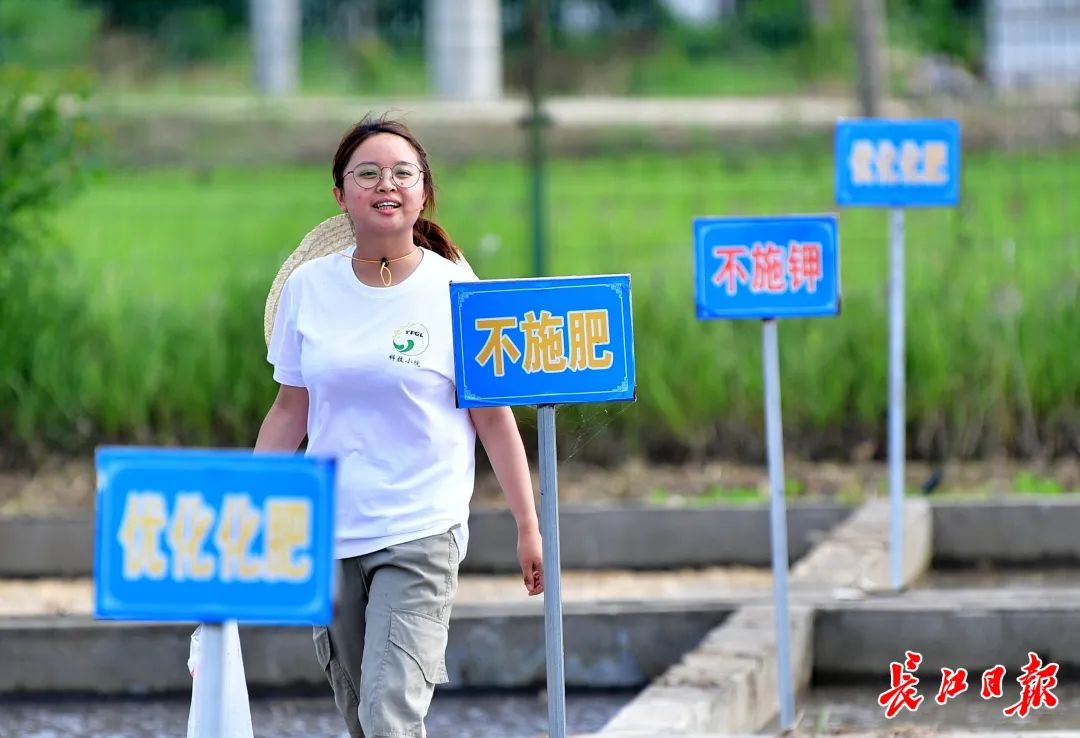
Fang Yating works in the field. (Photo/Changjiang Daily)
Initially, the student's lack of farm experience led to skepticism from some skilled growers in the village. To prove her worth, Fang instigated a rapeseed planting contest with local grower Wang Xuemei, who had 20 years of farming experience.
In 2020, Wang's per-mu (667 square meters) yield of rapeseed was 177.5 kilograms, whereas Fang's experimental field yielded 265 kilograms per mu. By 2022, Wang's yield increased to 226 kilograms per mu, while Fang's jumped to 354 kilograms per mu.
Admitting defeat graciously, Wang approached Fang to learn how to increase her crop yield. Fang revealed that precision fertilization and irrigation were the secrets to her success.
Shayang county is a major rapeseed growing area in China. During this year's Rapeseed Flower Festival, the county reported 3 million tourist visits, generating about 1.5 billion yuan ($209 million) in tourism revenue.
The Science and Technology Courtyard has contributed to the development of rapeseed farming technologies in Shayang county. Postgraduate students who have conducted research at the courtyard have become a driving force in the county's agricultural sector.
Photos
Related Stories
- China's farm produce foreign trade up 6.4 pct in H1
- China pledges more efforts to develop modern facility agriculture
- From field to fork, Hunan's crawfish farmers reap success
- Ancient chestnut business flourishing as growers pull together
- New tech drives rural development across China
- China's achievements in agriculture, poverty reduction inspire other developing countries, says Ghanaian official
Copyright © 2023 People's Daily Online. All Rights Reserved.







